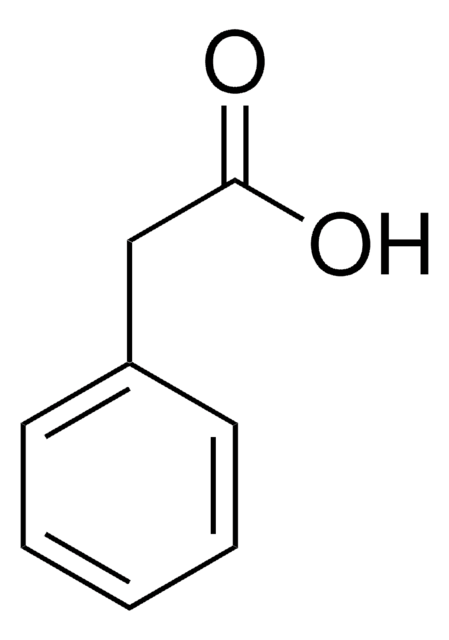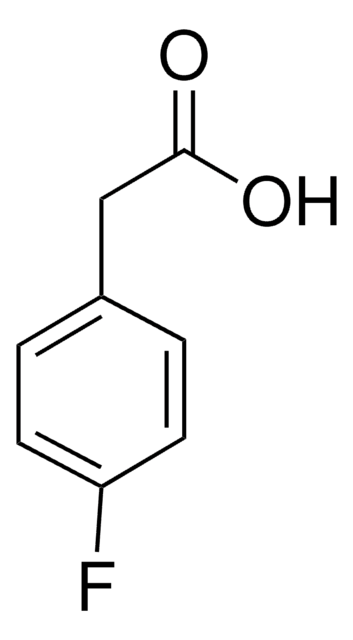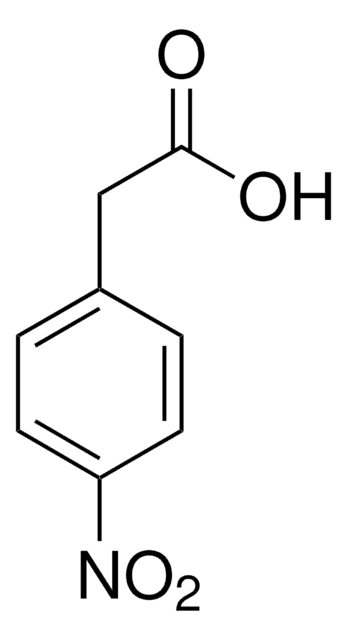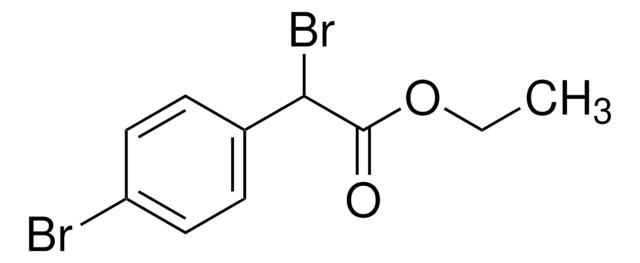All Photos(1)
About This Item
Linear Formula:
BrC6H4CH2CO2H
CAS Number:
Molecular Weight:
215.04
Beilstein:
972146
EC Number:
MDL number:
UNSPSC Code:
12352100
PubChem Substance ID:
NACRES:
NA.22
form:
powder
Assay:
98%
Recommended Products
Quality Level
Assay
98%
form
powder
mp
114-117 °C (lit.)
solubility
ethanol: soluble 5%, clear, colorless to light yellow
functional group
bromo
carboxylic acid
SMILES string
OC(=O)Cc1ccc(Br)cc1
InChI
1S/C8H7BrO2/c9-7-3-1-6(2-4-7)5-8(10)11/h1-4H,5H2,(H,10,11)
InChI key
QOWSWEBLNVACCL-UHFFFAOYSA-N
Looking for similar products? Visit Product Comparison Guide
Application
4-Bromophenylacetic acid was used as standard in the extraction of nonylphenol polyethoxy carboxylates with 1-4 ethoxy groups from sludge samples.
Biochem/physiol Actions
4-Bromophenylacetic acid is a growth inhibitory substance. It causes the depolarization effect on the transmembrane potential difference of tobacco protoplasts isolated from two genotypes differing in their sensitivity to auxins.
Storage Class Code
11 - Combustible Solids
WGK
WGK 3
Flash Point(F)
Not applicable
Flash Point(C)
Not applicable
Personal Protective Equipment
dust mask type N95 (US), Eyeshields, Gloves
Choose from one of the most recent versions:
Already Own This Product?
Find documentation for the products that you have recently purchased in the Document Library.
Customers Also Viewed
G Ephritikhine et al.
Plant physiology, 83(4), 801-804 (1987-04-01)
The effects of 1-naphthaleneacetic acid (NAA) and other auxin analogs on the transmembrane potential difference (Em) were compared on tobacco protoplasts isolated from two genotypes differing in their sensitivity to auxins. For both types, NAA modifies Em by inducing at
Subcritical (hot) water/ethanol extraction of nonylphenol polyethoxy carboxylates from industrial and municipal sludges.
Field JA and Reed RL.
Environmental Science & Technology, 33(16), 2782-2787 (1999)
Our team of scientists has experience in all areas of research including Life Science, Material Science, Chemical Synthesis, Chromatography, Analytical and many others.
Contact Technical Service









